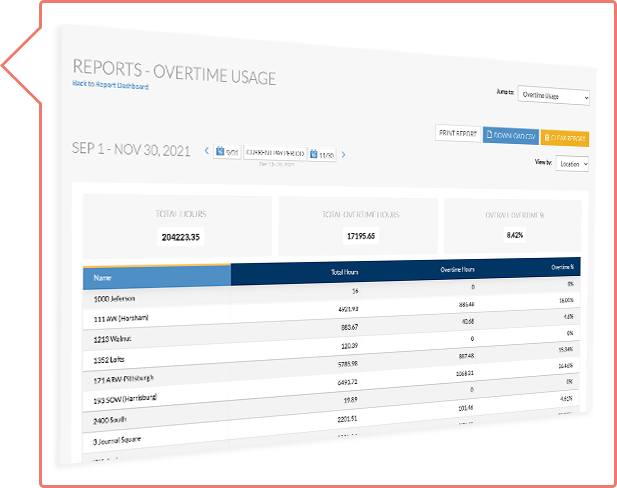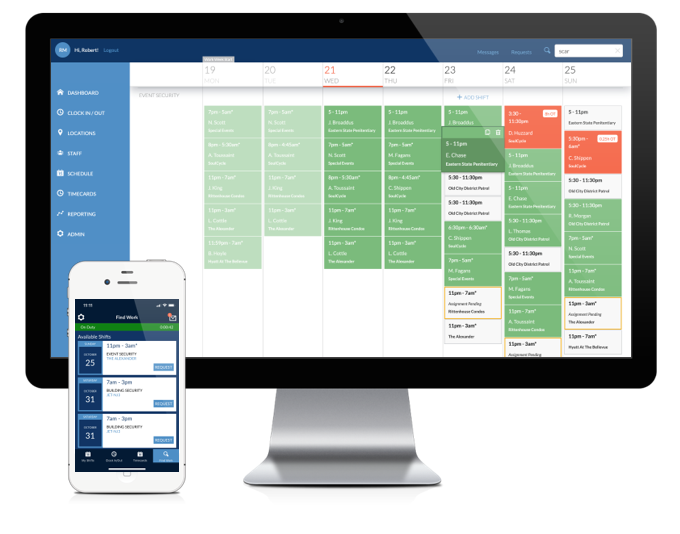In the fast-paced world of security firms, operational efficiency and growth are paramount. To meet the evolving demands of clients and the ever-changing security landscape, security firms need to streamline their operations. One effective way to achieve this is by utilizing scheduling software. In this article, we’ll explore how scheduling software, such as CuroShift, can significantly improve operational efficiencies and contribute to a security firm’s growth strategy.
The Intricacies of Security Firm Operations
Security firms face multifaceted challenges in managing their operations. They need to coordinate security personnel, equipment, and resources across various client locations and timeframes. The scheduling of security officers, patrols, and response teams must be precise to ensure the safety and security of clients.
In the absence of security scheduling software, security firms often rely on manual processes, spreadsheets, and paper-based systems. This can lead to inefficiencies, errors, and miscommunication, which can be detrimental to both operational performance and client satisfaction.
Security Scheduling Software: The Key to Efficiency
1. Streamlined Resource Allocation
Scheduling software provides security firms with a centralized platform to allocate resources efficiently. This includes assigning security personnel to specific shifts, client sites, and tasks. Software like CuroShift takes into account factors such as employee availability, skills, and certifications, ensuring that the right personnel are assigned to the right jobs.
By optimizing resource allocation, security firms can reduce downtime and idle resources, leading to cost savings and improved operational efficiency.
2. Real-Time Updates and Communication
Effective communication is critical in the security industry. Scheduling software offers real-time updates and notifications, ensuring that security personnel are always informed about their assignments, changes in schedules, or urgent updates. This eliminates the need for time-consuming phone calls or emails and minimizes the risk of miscommunication.
3. Enhanced Compliance and Reporting
Security firms operate in a highly regulated environment. Scheduling software can help maintain compliance by tracking work hours, rest periods, and certifications. It generates detailed reports that can be used to demonstrate compliance to clients and regulatory authorities, reducing the risk of fines or legal issues.

Growth Strategies Fueled by Security Scheduling Software
Efficiency is not only about cost savings; it also opens the door to growth opportunities. Here’s how scheduling software can contribute to a security firm’s growth strategy:
1. Scalability
As a security firm grows, managing schedules manually becomes increasingly challenging. Scheduling software can scale with the business, accommodating the scheduling needs of a larger workforce and more clients without a proportional increase in administrative overhead.
2. Improved Client Satisfaction
Efficient scheduling ensures that security personnel are always where they need to be when they need to be there. This reliability enhances client satisfaction, fosters trust, and can lead to client referrals, ultimately driving business growth.
3. Competitive Advantage
In a competitive industry like security services, the ability to deliver efficient and reliable services can set a firm apart. Scheduling software gives security firms a competitive edge by allowing them to meet client demands with agility and precision.
4. Data-Driven Decision Making
Scheduling software collects and analyzes data on operational performance. This data can be used to identify trends, opportunities, and areas for improvement. Informed decision-making based on data insights is a key driver of strategic growth.
In today’s security landscape, operational efficiency is not a luxury; it’s a necessity. Scheduling software empowers security firms to optimize resource allocation, enhance communication, maintain compliance, and drive growth. By leveraging the capabilities of scheduling software, security firms can not only survive but thrive in an increasingly competitive industry, ultimately providing better security services to their clients and securing their own future success.

